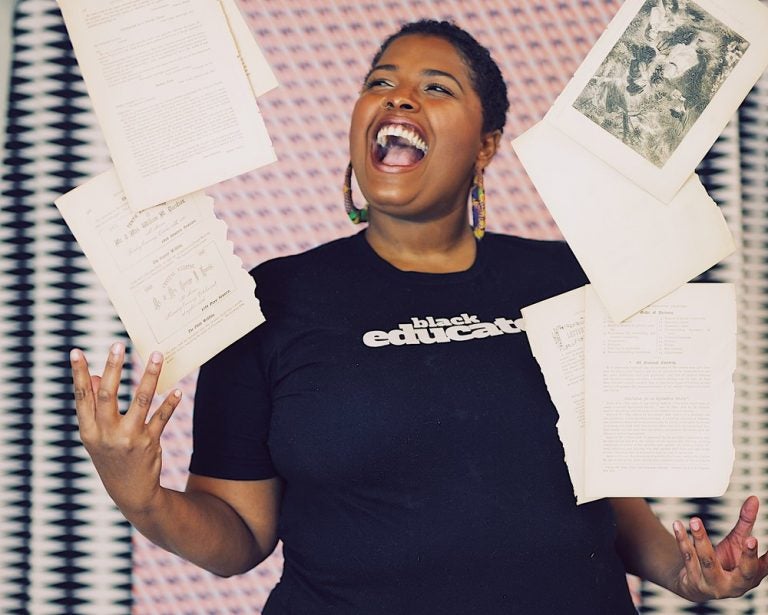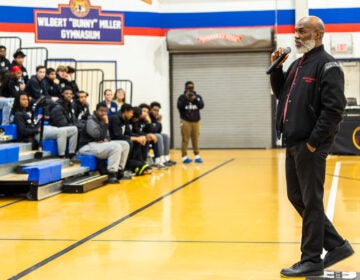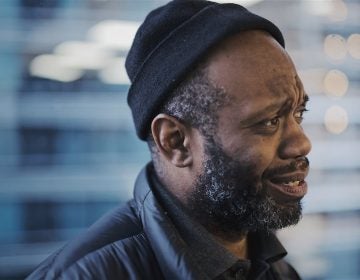The future of blackness doesn’t depend on comparisons to whiteness
I am an educator because I choose to invest in the future of blackness.

Miriam Harris is an educator. (Shawn Theodore)
Black History Untold, created by award-winning journalist Sofiya Ballin, is an identity series that explores the importance of a comprehensive black history education through personal essays. WHYY is republishing with permission four essays from the 2018 series “Black History Untold: Future.”
—
I am an educator, because I choose to invest in the future of blackness.
A few years back, I did a lot of work in activist spaces. I organized marches and actions. There came a point when I had to look at the work I was doing and realize I did not feel like I was making any change, but I was just shouting into a void. I was constantly aware of how much I might be killed. When I was doing activism work, I was in direct opposition of police killings. I became so obsessed with my own mortality and the mortality of black people that I could not see blackness outside of that.
I still am anxious and conscious of what may happen, but I have decided to put my energy completely into youth and into teaching.
For me, blackness is autonomous in the future. We are autonomous now, which is to say, I think that black people can and have always existed on our own. We have our own language(s), we have our own style, our own culture and subcultures. A lot of what I see now, in terms of American blackness, is that we are constantly in opposition to whiteness. Even when we reference things that black folk have in common, the conversation starts, “White people don’t do this,” or it’s brought on as a way to compare ourselves to white people. We don’t have to do that. We can talk about our food, our words, our style, the way we love, the way we mourn, the way we gather, without being the alternative option to normativity and whiteness. We can be our own norm.
We are well on our way to that future. I see memes and jokes flying on the black internet about things that we have all done in our childhood — how all our grandmothers have the same pot, or how we all know when we’re in trouble because our mothers all have the same mouth and clenched teeth. There’s a unifying effect about the conversations being had, and it’s helping us mold and strengthen a black identity with real room for nuance. When we take our opposer out of the narrative, we can take up all the space in that conversation. I think we need to continue not talking about how we are different from, but talking about how we are. And all the ways that we are.
If I can help mold the change-makers, if I can have my hand directly on our future, I will be less fixated on theirs and my own proximity to death as a black person. I can begin to believe in a world where we survive, because I am trying to build survivors. There are many roles in the revolution, and teaching is mine.
—
Miriam Harris, 24, is an educator.
WHYY is your source for fact-based, in-depth journalism and information. As a nonprofit organization, we rely on financial support from readers like you. Please give today.




